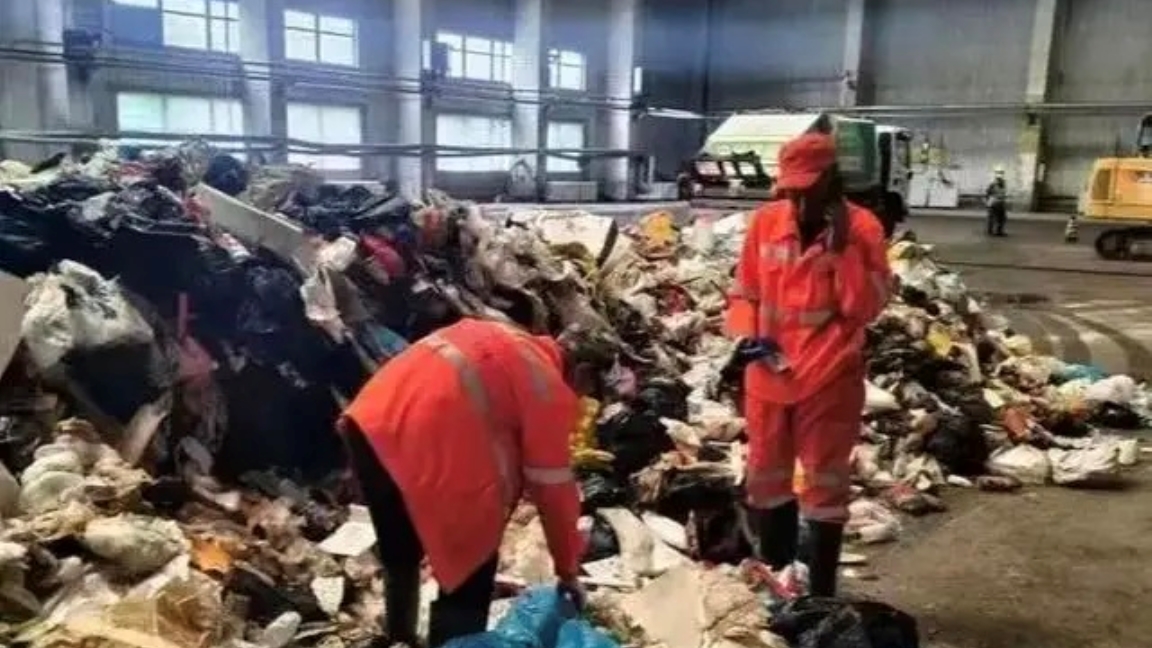

A screenshot of the sanitation workers looking for the watch in a garbage pile and Lu showing it in the video.
On July 2, a visitor named Lu called the 12345 hotline in Datong, capital of Shanxi Province, for assistance in looking for a misplaced watch.
The day before, on a bullet train from Shenzhen to Datong, Lu's son playfully put the smartwatch into a paper garbage but forgot to take it out when he got off.
Lu knew the kids' smart watch was still somewhere in the station, most likely in a garbage pile, because it had a GPS positioning function.
They had planned to visit the Yungang Grottoes the next day, so she called the hotline. It took two sanitation workers four hours to wade through the garbage pile in sweltering heat. The watch was eventually recovered.
Lu, moved by the experience, said: "If I hadn't come to Datong, I would never have known how lucky we are, and this luck comes from many kind people."
The flood of gratitude, however, didn't appease some doubts: "Was this search necessary? Do any of you express any concerns for the sanitation workers?"
When the sanitation workers were contacted, the watch was already in a compression facility. To make the search easier, the 8-ton mound of garbage was moved to a vacant area in a rubbish incineration power plant.
The local media saw it as a "heartwarming" story, and the environmental company in charge of the search publicized the findings on its official WeChat account.
But not everyone was impressed.
"I can't see how the story is so inspirational, or commendable," said one person.
"Compared with a smartwatch for a kid, the four hours of human exertion plus the costs in transferring the tons of garbage to another location are clearly overwhelming," another person noted.
The local urban management authority, which oversees sanitation, stated that this was not an isolated incident and that they will do everything possible to meet the demands of the people whenever necessary.
However, their approach fails to account for several complex aspects.
Since every public service has a cost, we are entitled to know who paid for this costly search. As one netizen pointed out, is there any classified information in this watch that justifies such a search?
Others proposed two further mitigating circumstances that warrant the search: The sanitation business could put the pile on hold for a while so that the Lu family could look it up themselves, or they could delegate the job to another party at Lu's expense.
Another dispute is whether sanitation personnel were fairly compensated for their added labor of going through 8 tons of rubbish for four hours in the heat.
It could not be determined from local accounts, but Lu did opt to tip the workers for their efforts, which was refused.
According to local media, in explaining the pricey search, a deputy chief of the local sanitation bureau stated, "Who is to decide whether the search is worthwhile or not?" This is simply something we should do; there is no need to overstate or understate it. We are always willing to help when folks are in need."
As someone wisely commented, the four-hour search through the pile would be a more justifiable and honorable task if completed by the deputy chief himself.

